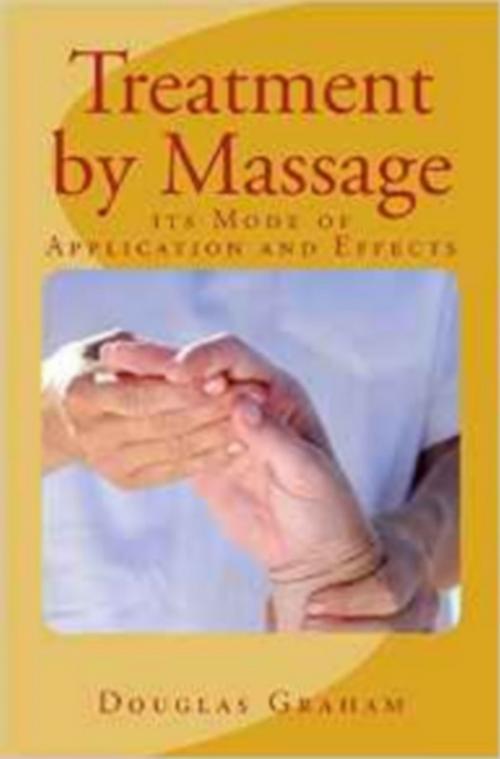Treatment by Massage
its Mode of Application and Effects
Nonfiction, Health & Well Being, Health, Alternative & Holistic Health, Massage & Reflexotherapy| Author: | Douglas Graham | ISBN: | 9782366591651 |
| Publisher: | Editions Le Mono | Publication: | March 20, 2016 |
| Imprint: | Editions Le Mono | Language: | English |
| Author: | Douglas Graham |
| ISBN: | 9782366591651 |
| Publisher: | Editions Le Mono |
| Publication: | March 20, 2016 |
| Imprint: | Editions Le Mono |
| Language: | English |
“Massage” from the Greek masso (I knead or handle), is a term now generally accepted to signify a group of procedures which are usually done with the hands, such as friction, kneading, manipulating, rolling, and percussing of the external tissues of the body, either with some curative, palliative, or hygienic object in view. Its application should in many instances be combined with passive, resistive, or assistive movements, and these are often spoken of as the so-called Swedish movement-cure. There is, however, an increasing tendency on the part of scientific men to have the word "massage" embrace all these varied forms of manual therapeutics, for the reason that the word "cure," attached to any form of treatment whatsoever, cannot always be applicable, inasmuch as there are many maladies that preclude the possibility of recovery and yet admit of amelioration. Hence the word "cure" may lead people to expect too much; and, on the other hand, the use of the word "rubbing" in place of "massage" tends to undervalue the application and benefit of the latter, for it is but natural to suppose that all kinds of rubbing are alike, differing only in the amount of force used.
“Massage” from the Greek masso (I knead or handle), is a term now generally accepted to signify a group of procedures which are usually done with the hands, such as friction, kneading, manipulating, rolling, and percussing of the external tissues of the body, either with some curative, palliative, or hygienic object in view. Its application should in many instances be combined with passive, resistive, or assistive movements, and these are often spoken of as the so-called Swedish movement-cure. There is, however, an increasing tendency on the part of scientific men to have the word "massage" embrace all these varied forms of manual therapeutics, for the reason that the word "cure," attached to any form of treatment whatsoever, cannot always be applicable, inasmuch as there are many maladies that preclude the possibility of recovery and yet admit of amelioration. Hence the word "cure" may lead people to expect too much; and, on the other hand, the use of the word "rubbing" in place of "massage" tends to undervalue the application and benefit of the latter, for it is but natural to suppose that all kinds of rubbing are alike, differing only in the amount of force used.















